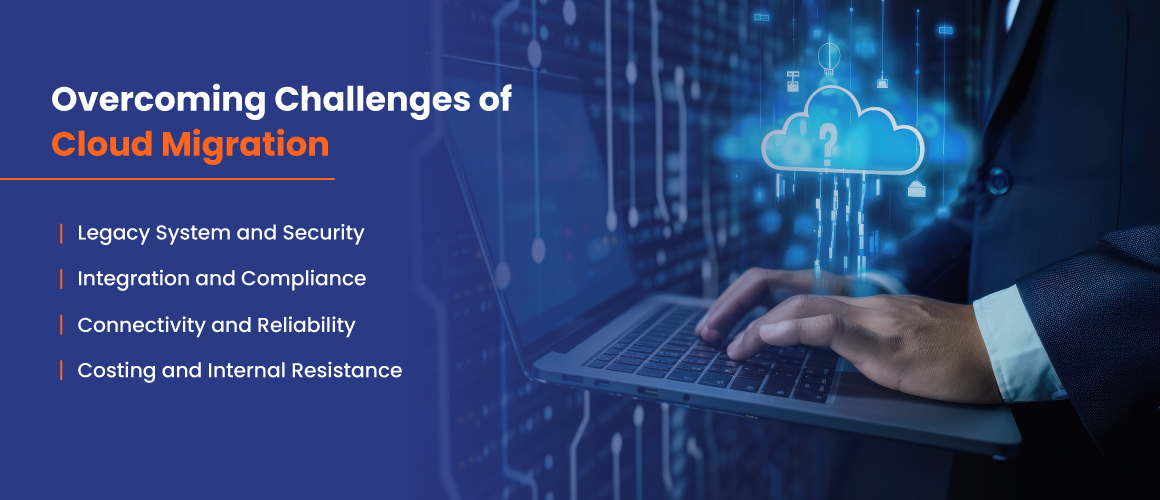Cloud computing technology has become more prevalent across all industry sectors in recent times. The manufacturing sector has emerged as one of the biggest beneficiaries of this revolutionary technology. In this post, we will dig deep into the key reasons why manufacturers prefer cloud-based solutions and what challenges they need to overcome. Let’s start with an overview of cloud-driven manufacturing and its scope in the manufacturing process.
What is Cloud-Based Manufacturing?
Cloud-based manufacturing or Manufacturing in the Cloud (MIC) is a unique concept of using cloud technologies to enhance and transform various manufacturing processes. This concept gains ground as more manufacturers tend to leverage the power of the cloud to access, manage, and operate various operations. For example, a cloud-based ERP solution can manage various activities across different departments including finance, HR, and production.
Cloud-based manufacturing facilitates companies to shift their resources and functionality to the cloud. It results in more security, higher scalability, and better accessibility. It also promotes innovation and reduces IT costs significantly. Let’s understand how cloud-based software solutions can optimize different processes in the manufacturing sector.
How Cloud-Based Solutions Optimize the Manufacturing Process
Cloud technology has enhanced the value of manufacturing companies with higher scalability, better accessibility, and increased efficiency. As per a recent McKinsey study, US-based Fortune 500 companies could achieve USD 1 trillion in value using the cloud by 2030. Cloud computing offers many benefits to industries irrespective of their scales. Grand View Research report has predicted that the global cloud computing market will be worth trillions of dollars by 2030.
Cloud-based solutions offer a range of tools and features to optimize various manufacturing processes. These solutions can act as a platform for all manufacturing data to ensure seamless information sharing. Manufacturers can enhance collaboration and make informed decisions based on actionable insights. Cloud-based ERP solutions can streamline workflows and optimize resource allocation to increase efficiency and productivity.
The flexible infrastructure of cloud-powered solutions enables manufacturing companies to scale their operations and bring new products in the market quickly. Moreover, enhanced supply chain management and optimized resource utilization can help them save big on operational costs. Cloud-based PLM (Product Lifecycle Management) solutions are useful for improving product design and development thereby maintaining quality standards.
Let’s have a glimpse of the benefits of cloud-based manufacturing solutions.
Benefits of Cloud-Based Solutions for Manufacturers
Cloud-based software solutions offer many benefits to manufacturers. Some of them are-
- Cost Savings
- Improved Collaboration
- Increased Agility
- Better SCM
- Higher Security
Cloud Managed Services eliminate the need for expensive on-premises hardware and other infrastructure. Manufacturers can opt for a pay-as-you-go model and optimize their resources for increasing efficiency. This results in cost savings for the manufacturing industry.
Data centralization and higher accessibility can improve collaboration across different departments of the manufacturing industry. Cloud solutions also contribute in streamlining workflows by automating tasks like order processing and inventory management.
Manufacturers can scale up or down their operations quickly in line with demand using cloud solutions. It assists them to increase or decrease scalability without additional investment. Manufacturers can reduce TTM (Time to Market) by increasing agility.
Supply chain management is one of the most essential aspects of the manufacturing sector. With cloud-based SCM solutions, manufacturers can get real-time visibility into inventory levels and supplier performance. This can help the optiize their supply chain.
Cloud solution providers invest in implementing robust security measures including data encryption, access control, and regular audits. Furthermore, manufacturers can get the advantage of automated data backup and recovery with cloud-driven solutions.
However, here it is fair to mention that manufacturers need to overcome some challenges while switching to cloud solutions. These challenges can act as a hurdle in leveraging the business benefits of cloud technology.
Overcoming Challenges of Cloud Migration

A successful transition to the cloud needs to address some of the following hurdles effectively
- Legacy System and Security
- Integration and Compliance
- Connectivity and Reliability
- Costing and Internal Resistance
Still, many manufacturing companies rely on legacy or outdated systems and on-premise infrastructure. While migrating to the cloud, this can pose a major challenge in terms of compatibility issues. Data stored in such legacy system needs security while migrating to the cloud and the entire migration process can be complex, costly, and time-consuming. Manufacturing companies need to prepare for this major challenge.
Integrating cloud applications into the existing manufacturing system is cumbersome. This can also raise concerns about security and compliance with prevalent regulations. Furthermore, manufactures must protect confidential data from unauthorized access and cyberattacks when switching to the cloud. Strong data encryption and access controls with other security protocols are necessary to implement during integration.
Cloud-powered solutions need Internet access continuously for optimum performance. Manufacturers need to ensure that they have sufficient bandwidth and a powerful connection to utilize cloud applications properly. At times, cloud transformation needs expertise and manufacturing companies may face a skills gap within their workforce. It is, therefore, necessary to arrange training sessions for employees.
It is always imperative to handle cloud spending. Manufacturers need to prepare for unexpected costs related to data storage and network usage. Apart from this, manufacturing companies need to implement proper change management as many enterprises may face internal resistance. As cloud technology promotes automation, manufacturing companies may witness resistance from employees at an initial level.
A trusted cloud solution partner can help manufacturers overcome these challenges and gain the advantage of advanced ERP and other solutions.
Future of Cloud in Manufacturing
The future of the cloud is transformative and promising for the manufacturing sector. We can expect the advent of cutting-edge technologies in cloud solutions for making smarter and more autonomous factories. Advancements in AI, ML, and IoT will take cloud-based ERP solutions for manufacturing to a new level with real-time data analysis and predictive maintenance. It is interesting to see how these solutions leverage cloud infrastructure and optimize processes.
Concluding Remarks
Cloud-based solutions for manufacturers offer many benefits including more scalability and productivity. However, companies need to handle some challenges like cost, internal resistance, etc. As technology evolves, more cloud manufacturing solutions with advanced features will arrive to transform various processes. A reputed and reliable cloud software development partner can assist manufacturers in leveraging the benefits and addressing challenges.
Silver Touch Technologies Canada is a leading cloud-based ERP solution provider for manufacturers. Our in-house team of experienced professionals can assist manufacturing companies in handling their operations efficiently with the help of advanced ERP solutions. Contact us to learn more about the scope of cloud-based software solutions for your company.



